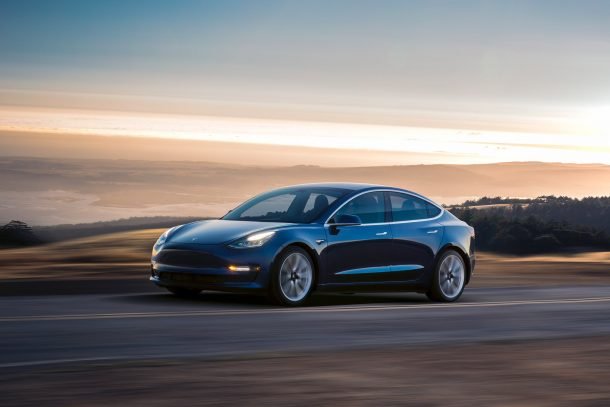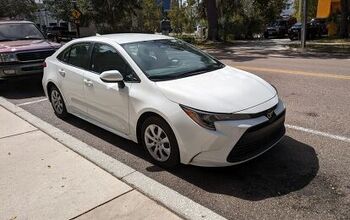Tesla Shares Slip as Elon Musk's Reassurances Fall Flat

It’s now Tesla that’s been disrupted.
For all of the Silicon Valley speak about “disrupting” the automotive industry, and despite some very interesting successes in doing just that, Tesla is still struggling to actually get cars to market.
That’s understandable to an extent – the company is small, with limited experience. But CEO Elon Musk has talked a big game, and thus far not delivered on his promises.
Wall Street, predictably, has noticed.
Tesla sent a letter to investors today stating it expects to reach its goal of 5,000 units of the new Model 3 per week by the end of the first quarter of 2018. That’s in contrast to the previous timeline, which placed the goal at the end of 2017.
Tesla also lost $619.4 million this quarter. That obviously doesn’t help its standing with investors.
Musk attributed production delays to difficulties in building battery packs at the Gigafactory in Nevada and to slowdowns with certain tasks, notably in welding and final assembly, at its Fremont, California factory. Musk reportedly also blamed suppliers for some problems. We’ve reported that there may be other problems, as well, and a rash of firings/layoffs recently has likely not helped.
Musk, of course, tried to calm investors by saying the problems are typical of any effort to bring a new vehicle to market.
In the eyes of investors, it doesn’t matter whether he’s right or wrong, what matters is promises kept. So it shouldn’t come as a shock that shares slipped 4.6 percent in extended Wednesday trading after the letter was released. They fell to under $308 per, which is down 20 percent from the peak reached at the midpoint of this year.
To be fair, that’s still a lot of money per share. No one is writing Tesla off. But between the company’s successes, Musk’s bluster, and a cadre of loyalists, the share price shot up based on expectations, and those expectations weren’t met.
“While we continue to make significant progress each week in fixing Model 3 bottlenecks, the nature of manufacturing challenges during a ramp such as this makes it difficult to predict exactly how long it will take,” Musk wrote in the letter. “The Model 3 production process will be vastly more automated than the production process of Model S, Model X or almost any other car on the market. Bringing this level of automation online is simply challenging.”
Again, it’s not unexpected that Tesla would run into problems getting its first-ever mass-market vehicle launched. Even the experienced so-called “legacy” automakers run into trouble from time to time, and Tesla is still new to the industry.
So combine standard-issue troubles with big talk and you have a recipe for sliding stock. It doesn’t help that of the 1,500 Model 3s Tesla aimed to build in the third quarter, just 260 were produced.
Only time will tell if Tesla gets rolling smoothly or continues to struggle, but the market appears to have corrected.
[Image: Tesla]

Tim Healey grew up around the auto-parts business and has always had a love for cars — his parents joke his first word was “‘Vette”. Despite this, he wanted to pursue a career in sports writing but he ended up falling semi-accidentally into the automotive-journalism industry, first at Consumer Guide Automotive and later at Web2Carz.com. He also worked as an industry analyst at Mintel Group and freelanced for About.com, CarFax, Vehix.com, High Gear Media, Torque News, FutureCar.com, Cars.com, among others, and of course Vertical Scope sites such as AutoGuide.com, Off-Road.com, and HybridCars.com. He’s an urbanite and as such, doesn’t need a daily driver, but if he had one, it would be compact, sporty, and have a manual transmission.
More by Tim Healey
Latest Car Reviews
Read moreLatest Product Reviews
Read moreRecent Comments
- ToolGuy TG likes price reductions.
- ToolGuy I could go for a Mustang with a Subaru powertrain. (Maybe some additional ground clearance.)
- ToolGuy Does Tim Healey care about TTAC? 😉
- ToolGuy I am slashing my food budget by 1%.
- ToolGuy TG grows skeptical about his government protecting him from bad decisions.


































Comments
Join the conversation
How good is the Tesla Model 3 in the Moose Avoidance test?
Musk now saying no Chinese factory for at least 3 years. So they won't be to 20K cars a month until April 2018 at the earliest. There is no way, no how, they will get to 500K cars a year at Freemont, or even close to it. It doesn't even seem they will be to 250K cars a year by the start of 2019.